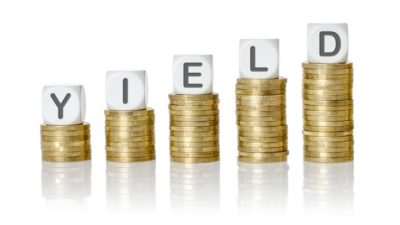On January 10, shares of Valeant Pharmaceuticals Intl Inc. (TSX:VRX)(NYSE:VRX) opened at almost $23 per share, which translated to an increase of approximately 13% from the previous day’s closing price. By the end of the day, shares settled at a price of $21.82 — an increase of approximately 7.5% for the day. Like with many news releases, there was an initial reaction, and after only three days, shares settled back to the previous level. On Friday, shares of the company closed at a price of $20.12 — down a matter of cents from Monday’s close of $20.29.
Although shareholders are looking for things to celebrate after the terrible 2015 and 2016, this was not substantial enough to make the cut. The initial euphoria turned out to be nothing. Shares have not budged for the week and probably will not be doing much on the upside in the next few months.
The very simple math investors need to look at for this company is the amount of revenue, expenses, and earnings per share. Assuming a company with many skews, each of which contributes to the revenue and, in turn, to the bottom line, chooses to sell a division or a skew, then investors need to ask, “What are the repercussions?”
In the case of Valeant, the first division being sold for $1.3 billion produces annual revenues of $169 million per year. The $1.3 billion may be a nice cash inflow, but now the revenues and the earnings per share will be declining in subsequent years. The second division or skew to be sold will bring in almost $820 million in cash (pre-tax). Again, the top and bottom lines will be reduced permanently after the first half of 2017 after both transactions close.
Although the company has already announced the proceeds will be used to reduce the debt load, effectively saving on interest costs, the reality is, a reduction of $2 billion in the company’s total long-term debt will not make much of a difference. The company currently has close to $30 billion in long-term debt. About $2 billion accounts for ~6.7% of the total long-term outstanding debt, assuming no taxes are paid on the proceeds from the sale of the two skews.
Currently, the annual interest expense is in excess of $1.5 billion (based on annual revenues of $10 billion) and will rise as the debt instruments mature and are refinanced at higher rates. The company’s risk profile is very different than it was only two years ago, and interest rates will be heading upwards during the year.
Looking at the numerator and the denominator of earnings and shares outstanding, the equation will not work in the investors’ favour for a very long time. Revenues and profits will decline, while shares outstanding will remain constant in a best-case scenario. Although the company has a number of fantastic opportunities to raise cash, the reality is, there is simply too much debt outstanding which will cripple the company for years to come, assuming the company survives. I will be investing my money elsewhere.







